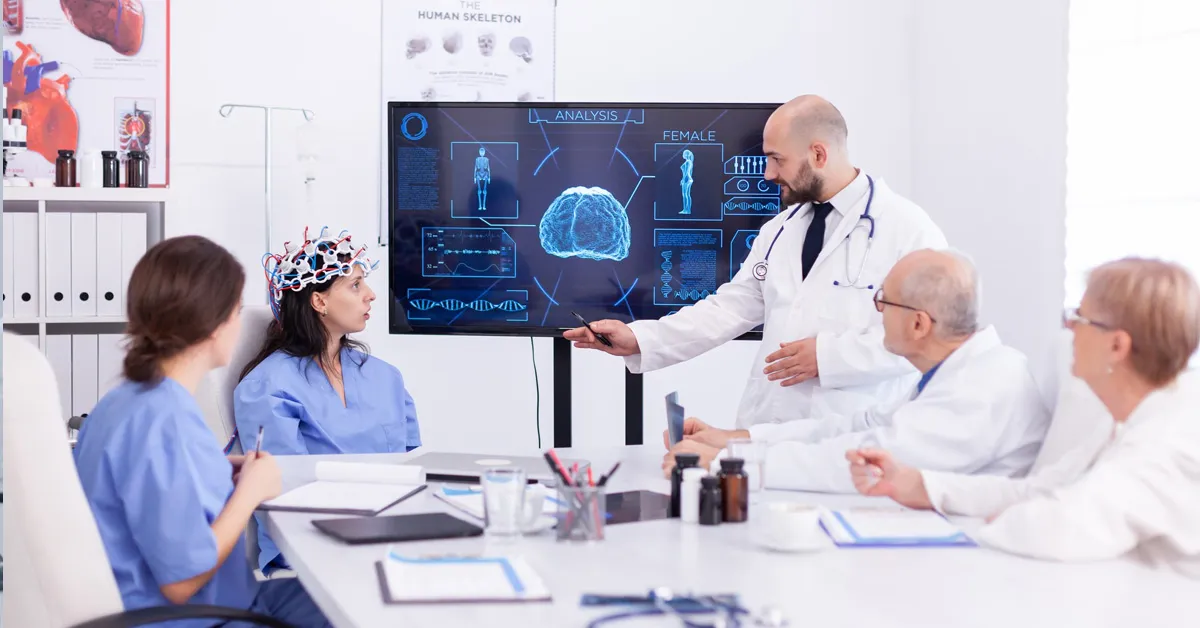Technology has become part of the lives of people in today’s generation. It has impressively evolved in the past few decades. Technology has transformed our lives and at the same time has helped us evolve with it. In today’s generation, technology has contributed more than anything to help human beings live convenient life. Technology has transformed various industries, and the field of medical education is no exception.
In recent years, advancements in technology have revolutionized the way medical knowledge is acquired, disseminated, and applied. From virtual reality simulations to online learning platforms, the integration of technology in medical education has opened up new possibilities for students, educators, and healthcare professionals. This blog explores the profound impact of technology in medical education and the way it is shaping the future of healthcare.
Enhanced Learning Experience
One of the significant advantages of technology in medical education is the enhanced learning experience it offers. Traditional lectures and textbooks are being complemented or even replaced by interactive digital platforms, allowing students to engage with the material in a more dynamic and personalized way. Virtual anatomy programs, for instance, enable students to explore the human body in a three-dimensional virtual environment, providing a hands-on experience that was previously limited to cadaver dissection.
Simulation and Training
Technology has also played a crucial role in revolutionizing medical simulations and training. Simulation-based training programs, utilizing high-fidelity mannequins and virtual reality systems, allow students and healthcare professionals to practice critical procedures and scenarios in a safe and controlled environment. These simulations help develop clinical skills, decision-making abilities, and teamwork, fostering competence and confidence before working with real patients.
Accessible and Convenient Learning
With the advent of online platforms, medical education has become more accessible and convenient than ever before. Students can now access a wealth of resources, including lectures, textbooks, and research articles, with just a few clicks. E-learning platforms and Massive Open Online Courses (MOOCs) provide flexibility in learning, allowing students to study at their own pace and convenience, and breaking down barriers such as geographical limitations and time constraints.
Collaborative Learning and Networking
Technology has transformed medical education from a solitary pursuit to a collaborative and interactive experience. Discussion forums, online communities, and social media platforms enable students, educators, and professionals from around the world to connect, exchange ideas, and collaborate on research and projects. This interconnectedness fosters a global medical community that promotes the sharing of knowledge, experiences, and best practices.
Cutting-Edge Research and Innovation
Technology in medical education goes beyond the classroom and extends into research and innovation. Technological advancements have facilitated the collection and analysis of large datasets, leading to breakthroughs in areas such as genomics, personalized medicine, and artificial intelligence. Medical students and researchers have access to powerful tools and resources that enable them to explore new frontiers, contribute to scientific advancements, and drive innovation in healthcare.
Conclusion
The role of technology in medical education cannot be overstated. From providing an enhanced learning experience to facilitating simulation-based training, technology has transformed the way medical knowledge is acquired and applied. It has made education more accessible, convenient, and interactive, while also fueling research and innovation. As technology continues to evolve, medical education will continue to adapt and leverage these advancements, shaping the future of healthcare and producing a new generation of competent and tech-savvy healthcare professionals.




